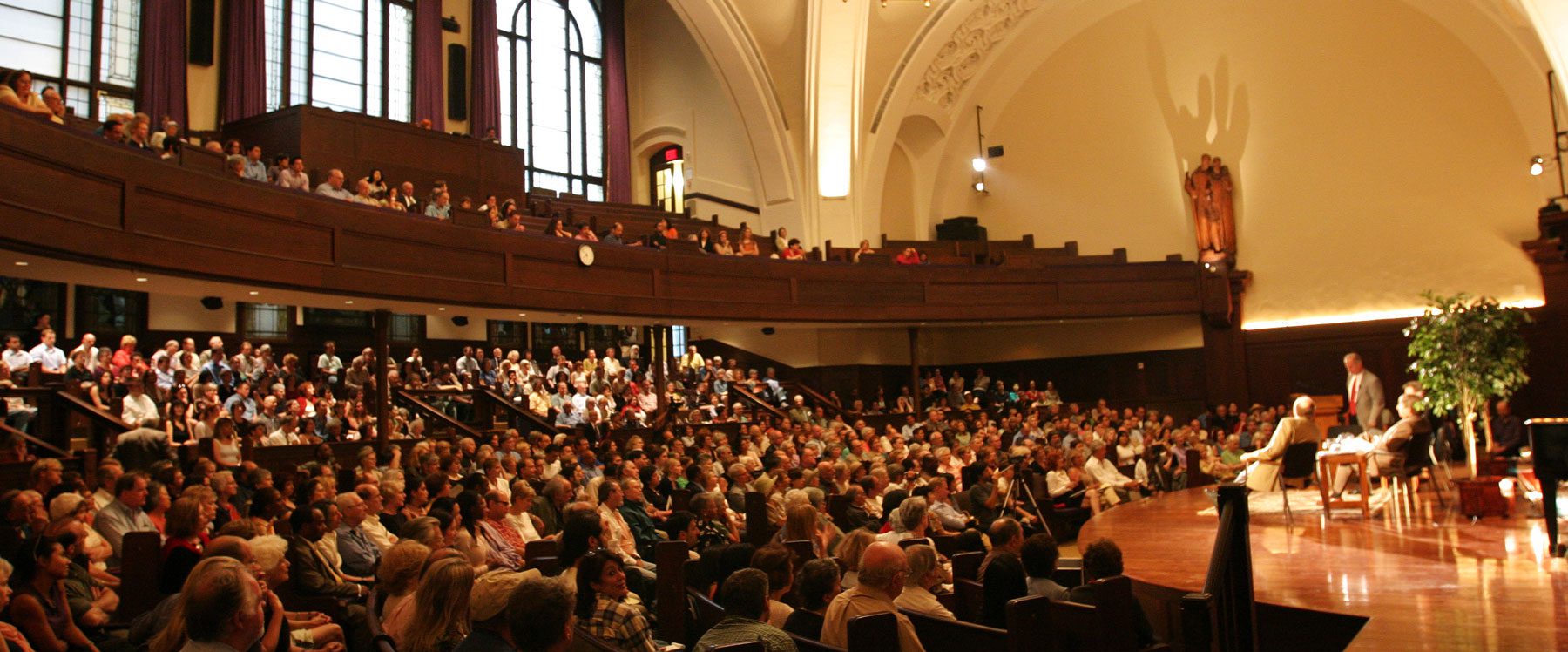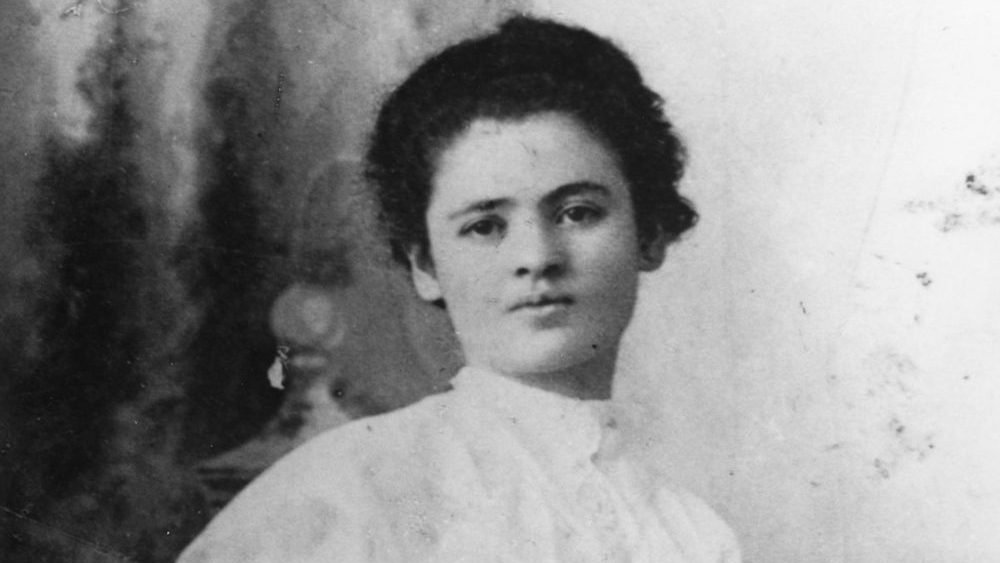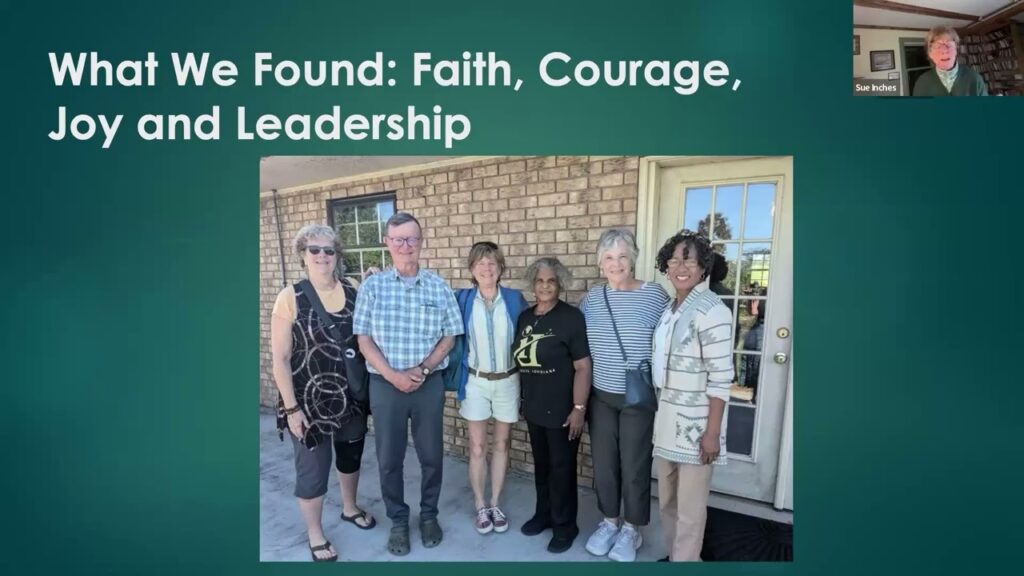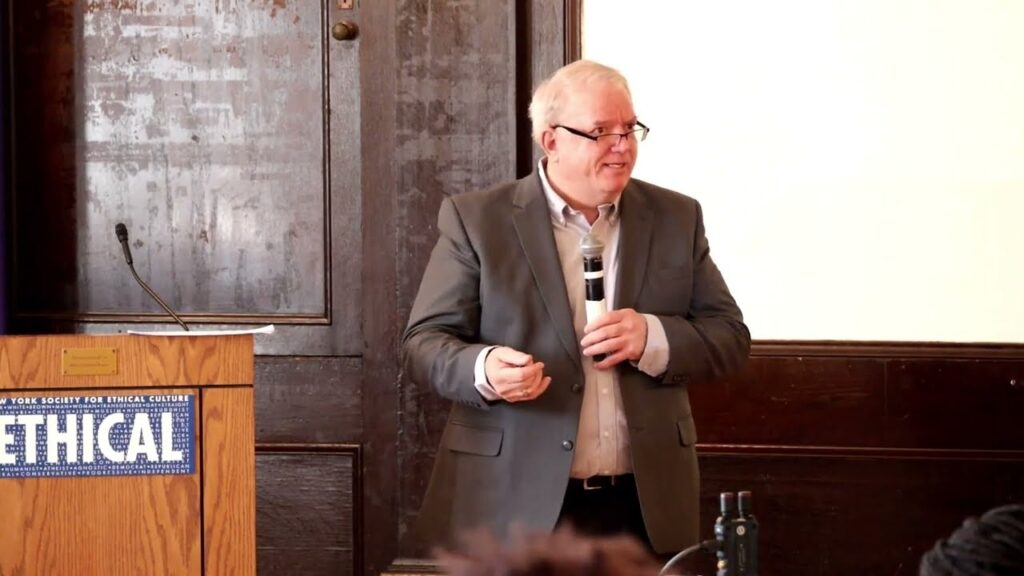
Last month, we hosted a viewing of “In God We Teach,” a documentary by Vic Losick that featured Matthew LaClair, who received NYSEC’s Ethical Humanist Award in 2007 for “courageously standing up to defend the principle of Religious Freedom and Separation of Church and State in the face of extreme opposition from his peers, teachers and principal.” The film tells the story of when he was a student at Kearny (NJ) Public High School and secretly recorded statements made in class by David Paszkiewicz, his history teacher. Here’s an example of those statements: “He [Jesus] did everything in his power to make sure that you could go to heaven, so much so that he took your sins on his own body, suffered your pains for you, and he’s saying, ‘Please, accept me, believe.’ If you reject that, you belong in hell.” Mr. Paszkiewicz also held forth on creationism, treating it as science rather than religion, a distinction that the courts have clearly directed public schools to make.
We viewers follow the process of Matthew approaching the local school board for redress, receiving none, and then going public with his recordings, at which point the story exploded nationwide. His teacher defended himself in the local paper by claiming that he was exercising academic freedom and expressing his personal opinions in response to students’ questions. While Matthew received support from legal and scientific luminaries like Alan Dershowitz and Neil deGrasse Tyson, David Paszkiewicz was embraced by his neighbors. As one minister pointed out to the LaClair family, “They like him, and they don’t like you.” It didn’t matter that a public school teacher had crossed the line between personal belief and public expression by “preaching” his brand of Christianity in the classroom. He was a nice guy.
Vic Losick does a commendable job of presenting his two subjects’ cases even-handedly and provides a portrait of Kearny, an average, blue-collar town where people are not accustomed to discussing politics and religion in the public square. Even if they had heard of the concept of “separation of church and state,” they didn’t understand what it meant in terms of the public school classroom. For many, it came down to making a choice between religious belief and civil law. In a town where 89 percent of the residents identify themselves as Christians, the choice was clear.
The first showing of “In God We Teach” was in a movie theater in Kearny with Vic, Matthew and David Paszkiewicz present. By several accounts, the discussion was tense, with the audience overwhelmingly supporting their native son. As moderator in our meeting house, I was determined to keep a firm hand on the proceedings. Members of the audience interested in posing questions were instructed to write them on index cards that were distributed and collected by our members, then given to me to read. Sensing that his former teacher might feel that Matthew had a home court advantage, I reassured him that we appreciated his participation and would treat him respectfully.
My task was challenging: Matthew and Mr. Paszkiewicz rarely answered the questions directly. Like politicians in a debate, they each had points to make and were determined to make them. Realizing that this unrepentant classroom evangelist was someone Felix Adler would call an “intellectual enemy,” I listened for the piece of truth that Ethical Culture’s founder believed was held even by those whose beliefs we find abhorrent. In the end, I believe I succeeded in creating a safe space for everyone and maintaining a civil discourse. But I heard no true statements from Mr. Paszkiewicz.
My personal encounter with him following the panel discussion deeply disturbed me. I experienced him as arrogant and ignorant – a dangerous combination, employing a strategy of playing victim and not taking responsibility for his actions. He defiantly stated that he has not changed his teaching methods, even though he was required to do so in an agreement made between the LaClair family and the local school board. His “relationship with God” allows him to promote his brand of Christianity in the classroom disguised as personal opinions. Rather than teaching critical thinking, he collects religious disciples.
Having heard Mr. Paszkiewicz’s “honest conviction,” as Ethical Culture strives to do, I decided to also take a stand and drafted a letter to the Kearny School Board. “It is not enough to allow students to opt out of this teacher’s class,” I wrote. “Those who can distinguish personal opinions from facts will always seek out teachers who respect true learning. It is your responsibility to protect students who have yet to practice critical thinking and can fall under the influence of someone who dishonors the profession of teaching by presenting fantasy as reality.”
Nice guys can be charming, but they aren’t always ethical. We can offer them a place at our table, but we must pay close attention to what they say and do. To stay at the table as welcome and honored guests, we must demand of ourselves and others honesty, integrity and responsible behavior.







